
The Australian Senate is the upper house of the bicameral Parliament of Australia, the lower house being the House of Representatives.
Electoral systems of the Australian states and territories are broadly similar to the electoral system used in federal elections in Australia.
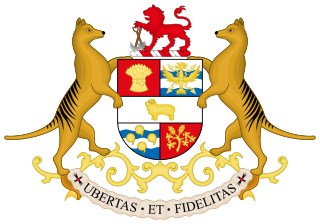
The House of Assembly, or Lower House, is one of the two chambers of the Parliament of Tasmania in Australia. The other is the Legislative Council or Upper House. It sits in Parliament House in the state capital, Hobart.
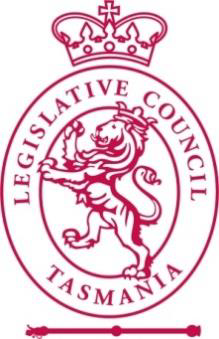
The Tasmanian Legislative Council is the upper house of the Parliament of Tasmania in Australia. It is one of the two chambers of the Parliament, the other being the House of Assembly. Both houses sit in Parliament House in the state capital, Hobart. Members of the Legislative Council are often referred to as MLCs.

The 1979 Spanish general election was held on Thursday, 1 March 1979, to elect the 1st Cortes Generales of the Kingdom of Spain. All 350 seats in the Congress of Deputies were up for election, as well as all 208 seats in the Senate.

Elections were held in the Australian state of Queensland on 19 September 1992 to elect the 89 members of the state's Legislative Assembly.

Landstinget was the upper house of the Rigsdag, from 1849 until 1953, when the bicameral system was abolished in favour of unicameralism. Landstinget had powers equal to the Folketing, which made the two houses of parliament hard to distinguish.

The Legislative Assembly, also known as the Parliament of Samoa, is the national legislature of Samoa, seated at Apia, where the country's central administration is situated. Samoan Parliament is composed of two parts: the O le Ao o le Malo and the Legislative Assembly.

The House of Assembly of the British Virgin Islands, until 2007 known as the Legislative Council, has 15 members: 13 directly elected for four-year terms, and two ex officio members.

The Norfolk Island Legislative Assembly was the prime legislative body of Norfolk Island from 1979 to 2015. Formed after the Norfolk Island Act 1979 was passed in the Australian Parliament, its first members were elected on 10 August 1979. The last assembly was the 14th, elected on 13 March 2013. On 17 June 2015, the Australian Government abolished the assembly, ending self-government on the island. Norfolk Island Regional Council, a local government body instituted under New South Wales law and with significantly-restricted powers, was established in July 2016 to perform local-level governance on the island.
David Ernest Buffett AM is a political figure from the Australian territory of Norfolk Island. He served as Chief Minister of Norfolk Island from March 2010 to March 2013; he has also held the position three previous occasions. He is the longest-serving member of the Norfolk Island Legislative Assembly, having served on every Assembly since it was established in 1979.
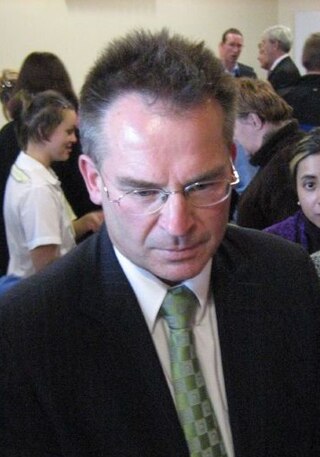
Elections to the Australian Capital Territory Legislative Assembly were held on Saturday, 20 October 2001. The incumbent Liberal Party, led by Gary Humphries, was challenged by the Labor Party, led by Jon Stanhope. Candidates were elected to fill three multi-member electorates using a single transferable vote method, known as the Hare-Clark system. The result was another hung parliament. However Labor, with the largest representation in the 17-member unicameral Assembly, formed Government with the support of the ACT Greens and Democrats. Stanhope was elected Chief Minister at the first sitting of the fifth Assembly on 12 November 2001. The election was conducted by the ACT Electoral Commission and was the first time in Australia's history that an electronic voting and counting system was used for some, but not all, polling places.
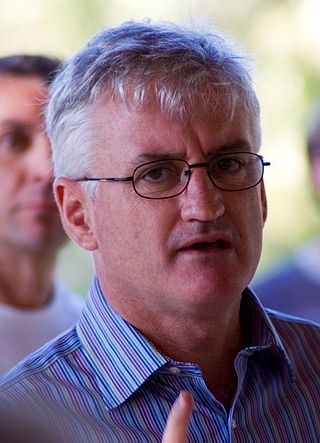
The 2008 Western Australian state election was held on Saturday 6 September 2008 to elect 59 members to the Legislative Assembly and 36 members to the Legislative Council. The incumbent centre-left Labor Party government, in power since the 2001 election and led since 25 January 2006 by Premier Alan Carpenter, was defeated by the centre-right Liberal Party opposition, led by Opposition Leader Colin Barnett since 6 August 2008.

There are five types of elections in the United Kingdom: elections to the House of Commons of the United Kingdom, elections to devolved parliaments and assemblies, local elections, mayoral elections, and police and crime commissioner elections. Within each of those categories, there may also be by-elections. Elections are held on Election Day, which is conventionally a Thursday, and under the provisions of the Dissolution and Calling of Parliament Act 2022 the timing of general elections can be held at the discretion of the prime minister during any five-year period. All other types of elections are held after fixed periods, though early elections to the devolved assemblies and parliaments can occur in certain situations. The five electoral systems used are: the single member plurality system (first-past-the-post), the multi-member plurality, the single transferable vote, the additional member system, and the supplementary vote.
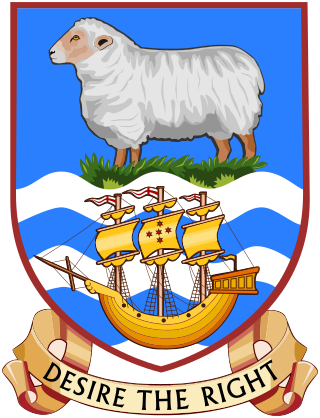
The Falkland Islands general election of 2009 was held on Thursday 5 November 2009 to elect members to the Legislative Assembly. It was the first general election in the Falkland Islands since the new constitution came into force on 1 January 2009, which replaced the old Legislative Council with the Legislative Assembly. Chief Executive Tim Thorogood acted as Returning Officer.

The 2012 Hong Kong Legislative Council election was held on 9 September 2012 for the 5th Legislative Council (LegCo) since the establishment of the Hong Kong Special Administrative Region.
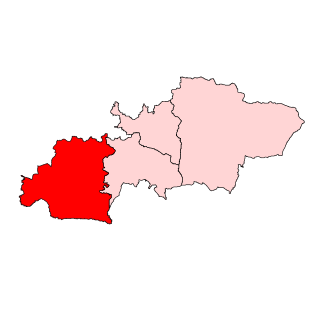
Gundlupet Assembly constituency is one of the 224 electoral constituencies that form the Karnataka Legislative Assembly in the south-Indian state of Karnataka. It is part of Chamarajanagar Lok Sabha constituency.
The 2010 Norfolk Island legislative election was held on 17 March 2010 to elect the 13th Norfolk Island Legislative Assembly, the prime legislative body of Norfolk Island.

The 2013 Norfolk Island legislative election was held on 13 March 2013 to elect the 14th Norfolk Island Legislative Assembly, the prime legislative body of Norfolk Island.
The 2004 Norfolk Island legislative election was held on 20 October 2004 to elect the 11th Norfolk Island Legislative Assembly, the prime legislative body of Norfolk Island.
















